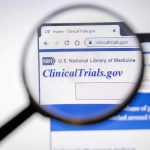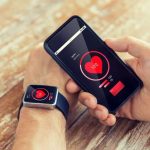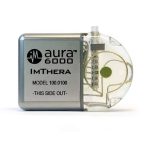Summary: The NIH’s Recover Initiative is launching medical trials to investigate treatments for long COVID-relevant signs and symptoms, together with rest disturbances and write-up-exertional malaise. The Recuperate-Sleep trials will study two Fda-accredited medication, melatonin, and gentle therapy for hypersomnia and complicated rest disturbances. The Recuperate-ENERGIZE trials will test customized cardiopulmonary rehabilitation for training intolerance and structured pacing for article-exertional malaise. The trials will enroll 1,660 members across 50 web-sites, aiming to handle some of the most disruptive signs of lengthy COVID and make improvements to patient outcomes.
Key Takeaways:
- The NIH’s Recover Initiative is launching clinical trials to look into solutions for extensive COVID indicators, which includes sleep disturbances, training intolerance, and article-exertional malaise.
- The trials include things like two Fda-permitted medicine (modafinil and solriamfetol), melatonin, light-weight treatment, cardiopulmonary rehabilitation, and structured pacing to address hypersomnia, rest disturbances, and exercising intolerance.
- The trials will enroll 1,660 participants across 50 web sites, aiming to give productive solutions for some of the most burdensome extended COVID indications.
The Nationwide Institutes of Overall health (NIH) will start clinical trials to examine probable treatment options for lengthy-term symptoms right after COVID-19 an infection, like snooze disturbances.
The scientific studies will also investigate solutions for work out intolerance and the worsening of signs and symptoms subsequent physical or psychological exertion acknowledged as submit-exertional malaise. The mid-phase trials, aspect of NIH’s Studying COVID to Greatly enhance Restoration (Get better) Initiative, will be part of six other Get well scientific studies at the moment enrolling contributors throughout the United States tests treatment options to deal with viral persistence, neurological indications, which includes cognitive dysfunction (like mind fog) and autonomic nervous program dysfunction.
The new trials will enroll roughly 1,660 individuals throughout 50 research web sites to look into opportunity remedies for some of the most frequent and burdensome signs and symptoms reported by people today dealing with extensive COVID.
“The group of symptoms these trials will try out to relieve are definitely disruptive and devastating for so several folks struggling with long COVID,” says Walter J. Koroshetz, MD, director of NIH’s National Institute of Neurological Problems and Stroke, and co-direct of the Get better Initiative, in a release. “When folks can’t get dependable sleep, can’t exert them selves, and truly feel ill adhering to tasks that used to be uncomplicated, the bodily and psychological anguish can lead to thoughts of utter helplessness. We urgently have to have to occur up with answers to assist all those struggling with long COVID feel entire again.”
Snooze Trials
Recuperate-Snooze clinical trials will before long begin enrolling contributors and involve:
- A trial to check two medicines (modafinil and solriamfetol) authorized by the Food and Drug Administration to address men and women with hypersomnia. These medications are properly-regarded but have not been researched greatly in persons with prolonged COVID. Participants will be randomly assigned to acquire either the lively review drug or a placebo management for 8 to 10 months, based on the assigned research drug.
- A trial to take a look at potential treatment options for sophisticated slumber disturbances owing to long COVID, which include melatonin, an above-the-counter complement commonly utilized to address people with sleep problems and standard insomnia and mild therapy, which is employed to help men and women reset their slumber cycles. Contributors will be randomly assigned to obtain possibly melatonin or a placebo management, and either superior-depth (energetic) gentle remedy or minimal-intensity (placebo) light-weight therapy for 8 months.
Energize Trials
Recover-ENERGIZE scientific trials will quickly commence enrolling members and include:
- A demo to test a application that brings together physical exercise schooling, strength and flexibility schooling, training, and social aid, collectively regarded as customized cardiopulmonary rehabilitation. The method is designed to aid individuals who expertise workout intolerance with signs these as shortness of breath and tiredness throughout training immediately after obtaining COVID-19. All contributors in Get well-ENERGIZE trials will be screened for article-exertional malaise. Contributors who are identified as having write-up-exertional malaise, by means of a validated article-exertional malaise questionnaire, will not be incorporated in this demo. Members will be randomly assigned to receive either individualized cardiopulmonary rehabilitation or simple exercising education for three months.
- A demo to check a program recognized as structured pacing, which is designed to support contributors with publish-exertional malaise detect, management, and reduce indications that developed following possessing COVID-19 by regulating or pacing their every day activities. At this time, structured pacing is the only intervention applied to treat article-exertional malaise. The trial will not consist of any exercising training or physical motion to shield contributors from developing worsened symptoms of submit-exertional malaise. Individuals will be randomly assigned to get either structured pacing with a qualified coach or standard write-up-exertional malaise education and learning for 3 months.
All 4 trials were being made making use of in depth comments from the local community and in close partnership with affected individual associates, whose insights had been specially essential for the publish-exertional malaise demo, according to a release from the NIH. The write-up-exertional malaise trial was formulated to tackle problems expressed by patient advocacy teams about patient protection and to far better understand how this study system might aid strengthen post-exertional malaise indications.
“Structured pacing is at the moment the only intervention employed to stop post-exertional malaise, so we hope to test its success and identify how to finest manual individuals with regards to action management,” claims Lucinda Bateman, MD, an expert in post-exertional malaise and founder of the Bateman Horne Heart, in a launch.
Illustration Throughout Review Web-sites
Variety between trial individuals is a large priority for the Get better Initiative, in accordance to a launch from the NIH. To help various and inclusive representation, study web sites are selected based mostly on geographic location, their connection to communities, and observe record for enrolling varied study members. Teams at the selected examine internet sites will recruit contributors from their wellness methods and surrounding communities.
Websites at this time activated for each and every trial can be observed on ClinicalTrials.gov (Get better-Slumber NCT06404086, NCT06404099, NCT06404112 and Recover-ENERGIZE NCT06404047, NCT06404060, NCT06404073). New internet sites will be extra to clinicaltrials.gov as they start off enrolling members.
With the launch of these 4 studies, Get better is at this time testing 13 remedies throughout 8 scientific trials and carries on to enroll contributors.
Photo 181398932 © Aleksandr Koltyrin | Dreamstime.com




Leave a Reply